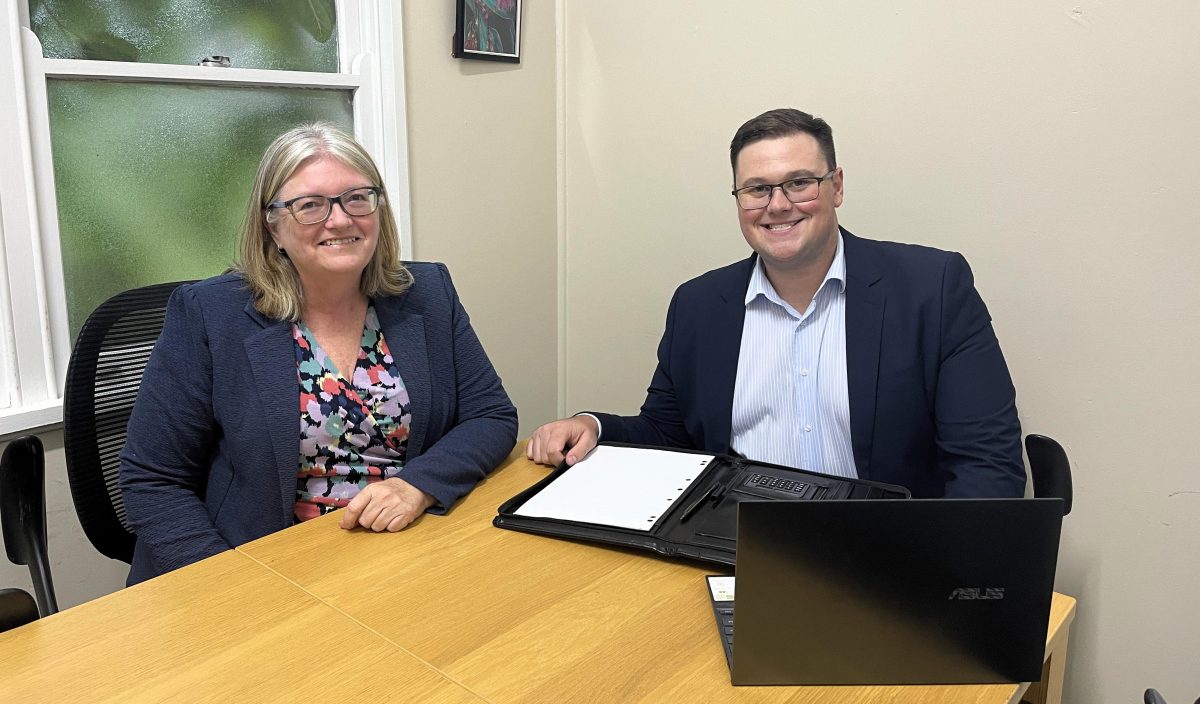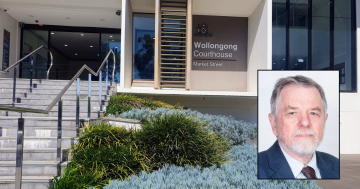
Transitus Legal’s Lynda Babister and Kayleb O’Connor offer a form of practice that helps preserve relationships. Photo: Supplied.
A small law firm in Helensburgh is hoping to help more families in the Illawarra settle disputes outside of court and preserve relationships by offering a less traditional type of legal practice.
Transitus Legal is increasing the accessibility of a client-led collaborative practice to help prevent those engaging in family law and will and estate disputes from ending up in court and suffering broken family relationships.
Lynda Babister, the principal lawyer at Transitus Legal and vice-president of Southern Sydney Collaborative Professionals, first came across the practice a decade ago and believed it was an important service that needed to be offered to her clients and community.
“Fundamentally I don’t see a point in spending a lot of the client’s money on arguing something in court when they don’t need to be there,” Ms Babister said.
“Basically court costs a lot of money and costs a lot of emotional capital and I’d rather assist the client in coming to a resolution that supports all parties.”
Collaborative practice focuses on cooperation and mutual benefit throughout the process rather than trying to get the upper hand out of the situation and solicitor Kayleb O’Connor said it was a completely different approach to what lawyers were used to.
“Particularly in wills and estates and family law, it’s usually very combative,” he said. “We’re not working together to resolve an issue, it’s us and ‘the other side’.
“The difference with collaborative practice is you’re looking to work with the other parties in the matter to come to a resolution that suits everyone.
“It’s client led as opposed to solicitors sending off these harshly worded letters and numerous affidavits being drafted which air the dirty laundry and puts everyone back in the frame of mind that it’s war.”
Instead of filing with the court, if clients are deemed suitable for this type of practice through multiple levels of screening, their solicitor engages with a ‘collaborative coach’ and ‘financial neutrals’ to help guide them through the process.
As part of the agreement, the solicitors involved aren’t allowed to represent the client if the issue later ends up in court.
This helps to promote transparency as the professionals guide clients through short sessions.
“Having these meetings limited to the two- or three-hour mark means you’re able to come in and set specific goals and focus on hitting those specific goals and the agenda for each meeting is also set by the clients and what the particular things they want to discuss,” Mr O’Connor said.
“If there’s a burning issue, let’s say a property or a piece of jewellery or something like that, that’s something that can be addressed first so that there’s not a lot of anxiety.”
The process being led by clients can help achieve outcomes that specifically cater for the circumstances and meet the needs of the people involved to optimise outcomes and maintain relationships.
“You can also come up with innovative solutions that suit a family rather than what’s imposed by a judge,” Ms Babister said.
“With family law collaborative practice, the ultimate aim that we’d really like to be able to do is to get the parties to be able to go to their kid’s wedding and be in the same room as each other.”
The approach is vital in regional areas like the Illawarra, where these relationships are critical not just for families, but for entire communities.
“When we’re in small areas such as Helensburgh there are families that have been here for years and they’re prominent and there’s a lot of them,” Mr O’Connor said.
“Being able to offer a service where we know they’re going to see each other at Coles or at the pub or any of the numerous cafes, it’s about how we keep it so you can still be the same family you were beforehand or ensure that you can sit down and have a coffee together.”
With both Ms Babister and Mr O’Connor trained in the practice, clients don’t have to travel across the state or to capital cities to access the option.
“It’s offering the Illawarra a really important service; people in the Illawarra are not different to people in Sydney so they should have access to these kinds of services,” Mr O’Connor said.
“And because it’s primarily a face-to-face meeting, you don’t want to have to travel too far and you can continue living your life,” Ms Babister said.
They hope that more lawyers across the region train in the practice so that it can be a feasible option for clients, with all parties involved required to have their own collaborative professional representing them throughout the process.
And by raising awareness of this type of practice, they can ensure that clients can search for appropriate practitioners and know the option is on the table.
“I see it going from strength to strength because it is so client focused and it has such human benefits to the clients,” Ms Babister said. “I can see it really taking off.”
To find out more, contact Transitus Legal.
















